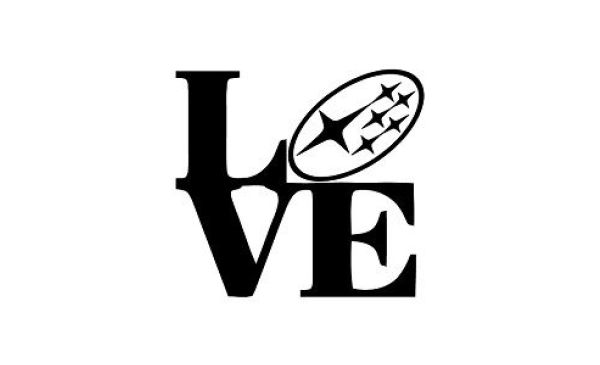Google is looking to reposition itself. That was the key takeaway from an interview the company’s co-founder and chief executive Larry Page gave to the Financial Times recently.
Asked whether Google needed a new mission statement, Page was characteristically open: “I think we do, probably.” But when challenged as to what that new mission should be, Page was more opaque: “We’re still trying to work that out.”
The problem for Page and his team is twofold. First, Google’s mission statement – ‘To organize the world’s information and make it universally accessible and useful’ – is more than a decade old. In the fast-moving world of digital innovation, that’s an aeon ago.
The brand might have begun with information access as its founding vision but Google’s enormous wealth, combined with incessant intellectual curiosity and a rabidly acquisitive corporate strategy has seen it stray far and wide from its founding mission. These days, Google is a cartographer, media agency, digital TV station, space exploration firm, designer of driverless cars and much more. Clearly, little of this fits a company with a mission associated with making information accessible.
The second problem is that, for all its success, Google has been wildly inconsistent as a brand and this has restricted the degree of affection and loyalty it enjoys with customers. Along with its outdated mission statement, Google positions itself using a ‘philosophy’ of 10 guiding principles. A glance at these confirms that Google has been repeatedly and egregiously contradictory to the rules it was meant to follow.
Principle 2 states: ‘It’s best to do one thing really, really well’. This suggests that focusing on specialty is what Google is all about. But how does that sit with the company’s wide array of acquisitions and extensions?
In the FT interview, Page recalls his chats with Steve Jobs in which the infamously focused Apple founder would berate Google for its overly diversified product development. “He would always tell me, you’re doing too much stuff,” Page says. “I’d be like, you’re not doing enough.” But Jobs had a good point and it’s particularly pertinent given how Google set out to grow in its founding philosophy.
But the contradictions do not end there. Principle 4 states that ‘Democracy on the web works’ but Google was content to enter China with a search engine that was allegedly secretly manipulated by the government to control what citizens retrieved from search requests.
Principle 5 claims ‘You can make money without doing evil’ but Google has been censured by the EU and other governments for collecting people’s Wi-Fi data as part of its Street View project.
And how about Principle 6 and the belief that ‘The need for information crosses all borders’ in light of Julian Assange’s new and as-yet-unproven claims that Google and the US government are in league with each other at a significant cost to other nations?
The reality is that Page is suffering from what all big brands must endure when they define their brand with too many words – inconsistency.
The great paradox of corporate branding is that the more words you use, the less traction any of it has with behaviors and brand equity. Every Tom, Dick and useless Harry from the world of brand consulting tries to sell companies a ‘brand purpose’, with ‘brand values’ allayed with ‘brand attributes’ and other associated horseshit arranged inside concentric circles because a) they don’t know any better and b) they’re getting paid by the yard.
The best-run brands, and Google is one, realize that it doesn’t matter what you call the positioning concept, but it had better be super tight and have influence over how the firm behaves.
It’s ironic that a company that built its success on a sparse home page is now floundering from loquaciousness. Time for Google to sit down and define what it really wants to stand for and then – and this is the difficult part – actually follow that prescription from now on. Let the search begin.
This thought piece is featured courtesy of Marketing Week, the United Kingdom’s leading marketing publication.
The Blake Project Can Help: Please email us for more about our purpose, mission, vision and values and brand culture workshops and programs.
Branding Strategy Insider is a service of The Blake Project: A strategic brand consultancy specializing in Brand Research, Brand Strategy, Brand Growth and Brand Education





3 comments
Dusan Maletic
February 3, 2015 at 11:26 am
Well, they could be honest and state the obvious business plan summary that indeed encompasses all what they are currently doing and planning to do:
Comprehensively collect information about all aspects of individuals life and develop technology to monetize future behavior predictions based on it.
Tom Asacker
February 3, 2015 at 2:34 pm
“Every Tom, Dick and useless Harry from the world of brand consulting tries to sell companies a ‘brand purpose’, with ‘brand values’ allayed with ‘brand attributes’ and other associated horseshit arranged inside concentric circles because a) they don’t know any better and b) they’re getting paid by the yard.”
Wow! A truth-teller. And an academic to boot! Quite refreshing.
Jamie Mistry-Evans
February 4, 2015 at 2:45 am
I work with small startups and solopreneurs, most of whom have no grounding in brand management, and they actually find brand vision and brand values extremely useful as a way of providing focus and consistency to their business activities, particularly in their early stages. They do have value when developed sensitively and intelligently, at least they do at this level. I found your article (while otherwise very insightful) to be unduly critical of these concepts without actually proposing a practical alternative.
Comments are closed.